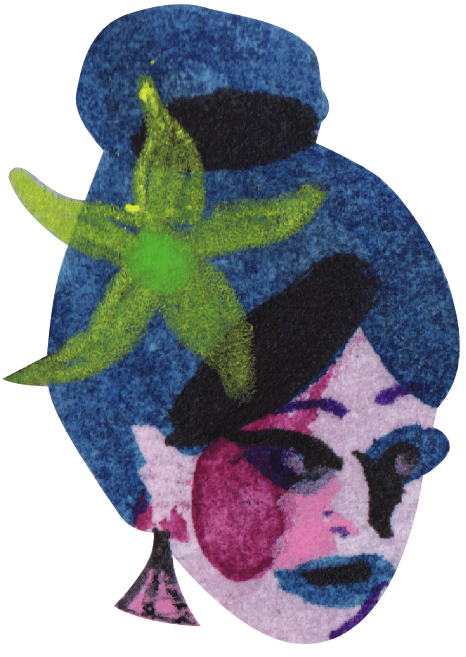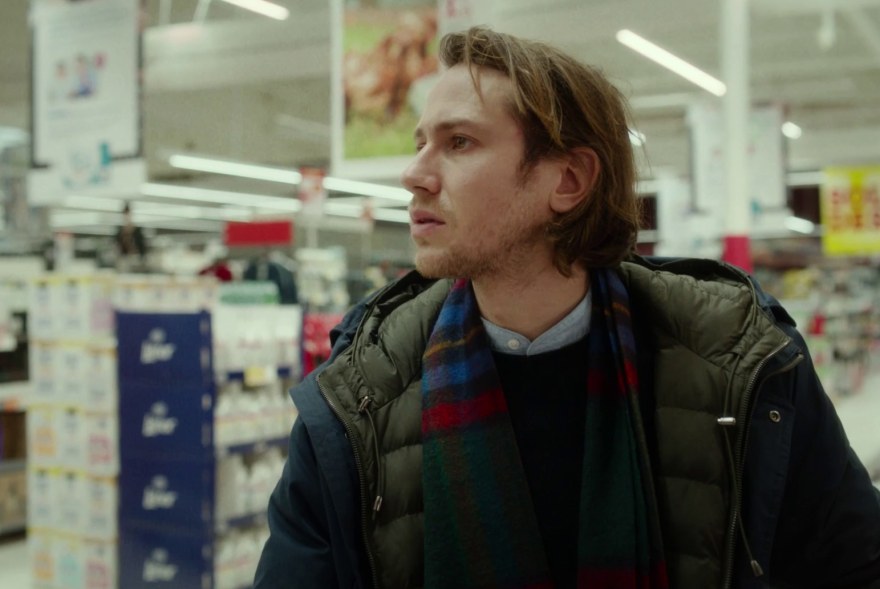Nightcap with Partir un jour [Bye bye]
Interview with Amélie Bonnin, director of Partir un jour [Bye Bye]

The idea was simply the personal sense that I have of belonging to the place where I grew up, and of always having this ambiguous feeling each time I go back. On the one hand I tell myself I could never live there again, I no longer want to, and at the same time I need to go back there regularly in order to feel complete. And there’s also this fantasy about your other possible life… the one you would have had if you’d stayed… And the question: Where are those who stayed behind? What’s become of them? Is there a chance we’ll cross paths with our crush from primary school if we accompany our parents to the same supermarket we used to go to when we still lived there? There’s a passage I like very much from Patrick Modiano’s L’Horizon [The Horizon] that goes: “He had always imagined that deep in some neighborhoods he’d meet the people he used to see when he was younger, their age and bearing intact”. That made an impression on me because I see myself in that nostalgia, and in the slightly magical idea that returning to the place we grew up could be like going back in time. As for Normandy, that’s actually just a matter of chance. As it happens, it was the first region that liked my project and wanted to support it. But I liked the idea of not being far from Paris. That we could reach “the big city” in a couple of hours by car or train, and yet when you live there, “the capital” seems like another world.

The choice of the type of songs to use was clear from the outset. The songs in the film are popular hits from the 90s. They correspond to what Julien listened to when he lived there. They basically function as memories that come back to him when he returns to his old haunts from way back when. He takes a dive back into his teenage years. For them to carry that emotional charge, the audience also had to have that Proustian madeleine feeling about at least one of the titles, or maybe even all of them! Popular hits have that power of bringing people together, of being vectors for shared memories.


I immediately thought of Juliette (Armanet) for the role of Caroline. I’d met her a few years earlier and she had a cheekiness, she’s direct, which struck me. I thought she was rebellious and funny, which gives her a very sexy quality. That’s exactly what I imagined for the character. For Julien I didn’t have any preconceived ideas. It was my producers who told me about Bastien (Bouillon). We had coffee and I was blown away. There’s something original about his attitude and diction… he gives off a genuine sense of uniqueness in the way he talks and the way he uses his body. The three of us did a read-through. I wanted to see if the harmony that I’d sensed when I met them separately worked. The read-through was a decisive moment for me in the process of making the film. Something really happened, I mean I think all three of us realized right then that everything was going crazy good, that it was going to work. When they meet in the film, the characters haven’t seen each other for years but they know each other, and their familiarity has to be palpable without having to make it explicit. Juliette and Bastien had that.

It’s a little early to say, since this is my first fiction film, but in the different projects I’ve been able to carry out up to now (documentary, podcast, etc.), the idea of returning, of handing down from one generation to the next, of family and love, those are recurring themes. As for forms, I think I like things to be free, whatever they are.


I’m currently working on a script for a feature film adaptation of Partir un jour with my co-scriptwriter Dimitri Lucas. I also want to write a television series about a young woman who goes back to live in her hometown (obviously…) and I’m getting ready to direct season three of MENTAL for France TV Splash. I want to make adaptations… I have plenty of ideas, I just have to find the time to get them under way.

Yes, there’s a short film that made a big impression on me a couple of years ago. It’s called La Femme de Rio [Rio’s Wife] and it’s directed by Emma Luchini and co-written with Nicolas Rey. It’s about two people who meet and decide to live out their love story in one night, with all the intensity of a relationship that would have lasted their whole lives. It’s both poignant and funny, realistic and poetic… It’s lovely.

Haha, that’s a huge question…! I think a good film is a film that moves people. That dislodges something in them. Aggravates a feeling – any feeling. Something that reminds us we’re living beings.
Partir un jour [Bye Bye] is being shown as part of National Competition F11.








